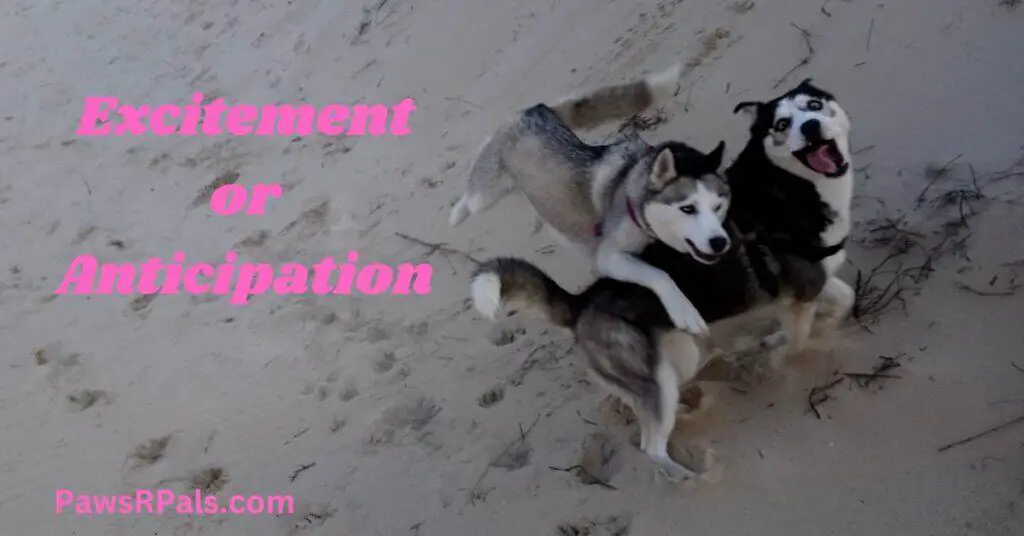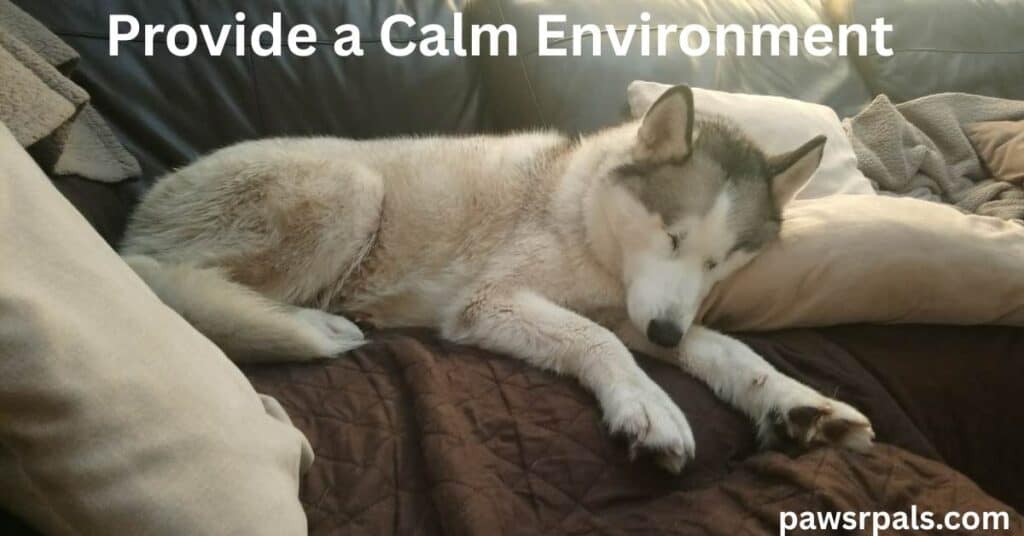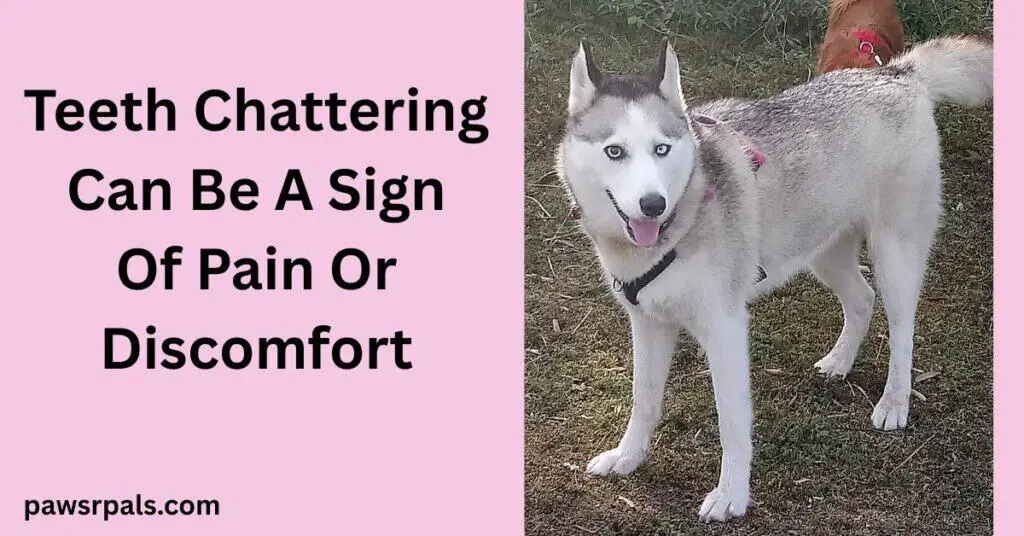If you’ve ever noticed your dog’s teeth chattering, you might have wondered what’s causing this unusual behaviour. While it can be amusing or even concerning, teeth chattering in dogs can stem from various reasons, ranging from emotional responses to medical conditions.
This article will explore the surprising reasons behind this quirky habit and what it might mean for your dog.
What Is Teeth Chattering in Dogs?
Teeth chattering, or jaw trembling, is the rapid clicking or clacking of a dog’s teeth. It can occur intermittently or persistently, and while it’s often harmless, it can sometimes indicate an underlying issue.
Understanding the potential causes can help determine whether it’s a simple quirk or requires attention. Here are some reasons why your do may be chattering their teeth:
1. Excitement or Anticipation
One of the most common reasons dogs chatter their teeth is excitement or anticipation. If your dog is eagerly awaiting a walk, a treat, or playtime, it might chatter its teeth as a physical expression of its enthusiasm. This is particularly common in high-energy breeds or dogs with a strong prey drive.

2. Cold Weather or Low Body Temperature
Just like humans, dogs may chatter their teeth when they’re cold. This is especially true for small breeds, short-haired dogs, or those not acclimated to colder climates. Teeth chattering in this context is a natural response to generate warmth and maintain body temperature.
If you notice your dog chattering its teeth during winter walks or in chilly environments, consider providing it with a cosy dog coat or sweater to keep it warm. Ensuring it has a comfortable bed can also help it stay cosy indoors.
3. Stress or Anxiety
Teeth chattering can also be a sign of stress or anxiety. Dogs may exhibit this behaviour in response to unfamiliar situations, loud noises (like fireworks or thunderstorms), or separation from their guardians. If your dog’s chattering is accompanied by other signs of stress, such as pacing, panting, or whining, it’s essential to address the underlying cause.
Creating a calm environment and providing a safe space, such as a crate or quiet room, can give your dog a sense of security during stressful times. Natural calming aids, like sprays or diffusers, may also help reduce anxiety.

4. Dental or Oral Health Issues
One of the more serious causes of teeth chattering is dental or oral health problems. Issues such as gum disease, tooth decay, or oral injuries can cause discomfort, leading to jaw trembling. If your dog’s chattering is persistent and accompanied by drooling, bad breath, or difficulty eating, it’s crucial to consult your vet.
Regular dental care, including brushing your dog’s teeth and providing dental chews, can help prevent oral health issues. Your vet may also recommend professional cleanings to maintain your dog’s dental hygiene.
5. Neurological Conditions
In some cases, teeth chattering can be a symptom of a neurological condition. Disorders affecting the brain, nerves, or muscles may cause involuntary movements, including jaw trembling. Conditions such as epilepsy, distemper, or focal seizures can manifest as teeth chattering.
If your dog’s chattering is accompanied by other neurological symptoms, such as loss of coordination, confusion, or unusual eye movements, seek veterinary advice immediately. Early diagnosis and treatment are essential for managing neurological conditions effectively.
6. Pain or Discomfort
Dogs may chatter their teeth as a response to pain or discomfort. This could be due to an injury, arthritis, or an underlying medical condition. If your dog’s chattering is paired with lethargy, limping, or changes in behaviour, it’s essential to investigate further.
A thorough veterinary examination can help identify the source of pain and determine the appropriate treatment. A comfortable resting area can alleviate discomfort and help your dog recover.

7. Old Age and Muscle Weakness
As dogs age, they may experience muscle weakness or joint stiffness, leading to teeth chattering. This is particularly common in senior dogs with conditions like arthritis or degenerative joint disease. The trembling may be more noticeable after physical activity or during colder weather.
Supporting your ageing dog with joint supplements, regular gentle exercise, and a warm, comfortable environment can help manage these symptoms. Consult your vet for tailored advice on caring for an older dog.
8. Low Blood Sugar (Hypoglycemia)
Low blood sugar, or hypoglycemia, can cause teeth chattering in dogs, especially in small breeds of puppies. This condition can occur due to irregular feeding schedules, excessive exercise, or underlying health issues like diabetes.
If your dog’s chattering is accompanied by weakness, lethargy, or confusion, offer them a small meal or a glucose supplement and contact your vet immediately. Maintaining a consistent feeding routine can help prevent hypoglycemia in susceptible dogs.
9. Poisoning or Toxin Exposure
Exposure to toxins or poisonous substances can cause various symptoms, including teeth chattering. Common culprits include household chemicals, certain plants, or toxic foods like chocolate or xylitol.
If you suspect your dog has ingested something harmful, seek emergency veterinary care immediately. Quick intervention can significantly improve the dog’s recovery.
10. Idiopathic Causes
Sometimes, teeth chattering may have no identifiable cause and is considered idiopathic. This is more common in certain breeds, such as Greyhounds or Chihuahuas, and maybe a harmless quirk.
If your vet rules out medical or behavioural causes, your dog’s chattering is likely part of their unique personality. Monitoring their behaviour and ensuring they’re otherwise healthy is the best action.
When to Consult Your Vet
While teeth chattering is often harmless, it’s essential to be vigilant. If your dog’s chattering is persistent, accompanied by other symptoms, or causing you concern, consult your vet for a thorough evaluation. Early detection and treatment can prevent potential health issues from worsening.
Understanding Your Dog’s Unique Language
Teeth chattering in dogs can be caused by various factors, from excitement and cold weather to more serious medical conditions. By understanding the potential reasons behind this behaviour, you can better care for your dog and ensure its well-being. Whether it’s providing a warm bed, addressing anxiety, or seeking veterinary advice, your attention and care can make all the difference.

Leave a Reply